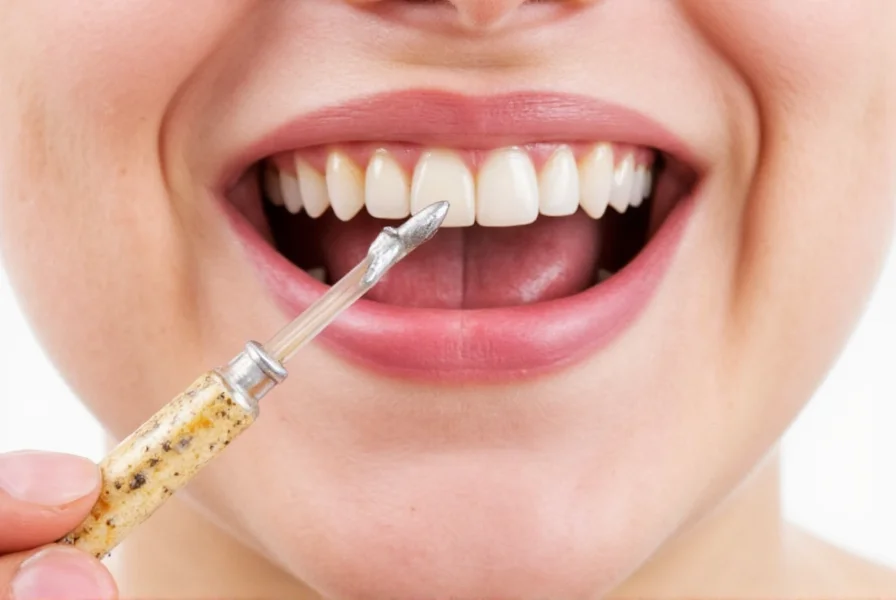For centuries, cloves have been used as a natural remedy for dental discomfort. The active ingredient, eugenol, makes up 70-90% of clove oil and has been scientifically validated for its pain-relieving and antimicrobial effects. Research published in the Journal of Dentistry confirms that eugenol effectively blocks pain receptors and reduces inflammation in oral tissues. However, it's crucial to understand that while cloves can provide temporary relief for minor toothaches, they don't address the underlying cause of dental problems like cavities or infections.
The Science Behind Clove's Dental Benefits
Eugenol, the primary bioactive compound in cloves, works through multiple mechanisms to alleviate dental discomfort. It functions as a natural anesthetic by temporarily numbing nerve endings in the affected area. Additionally, eugenol has significant antibacterial properties that can help reduce oral bacteria contributing to tooth decay and gum disease. A 2020 study in BMC Complementary Medicine and Therapies demonstrated that clove extract showed comparable antibacterial effectiveness to chlorhexidine, a common antiseptic used in dentistry.
Unlike synthetic pain relievers, cloves offer a natural alternative with fewer systemic side effects when used properly. The American Dental Association acknowledges clove oil as a temporary remedy for tooth pain, though they emphasize it should never replace professional dental evaluation and treatment.
Effective Methods for Using Cloves on Teeth
Proper application technique significantly impacts the effectiveness of cloves for dental relief. Here are evidence-based methods:
| Method | Effectiveness | Duration of Relief | Best For |
|---|---|---|---|
| Whole clove placement | Moderate | 20-30 minutes | Mild toothaches, immediate relief |
| Diluted clove oil | High | 30-60 minutes | Moderate pain, targeted application |
| Clove mouth rinse | Low-Moderate | 15-20 minutes | General mouth discomfort, gum issues |
| Clove powder paste | Moderate | 25-40 minutes | Tooth sensitivity, localized pain |
Whole Clove Method
For immediate relief from mild tooth pain, place a single whole clove directly on the affected tooth or gum area. Gently bite down to release the essential oils while keeping the clove in position. This traditional method provides localized numbing through direct eugenol delivery. Replace the clove when it becomes soft or the flavor diminishes.
Diluted Clove Oil Application
For more targeted relief, dilute clove oil properly before application. Mix 2-3 drops of clove oil with 1 teaspoon of carrier oil like olive or coconut oil. Apply the mixture to a cotton ball and hold it against the painful area for 15-20 minutes. Never apply undiluted clove oil directly to gums or teeth, as this can cause tissue irritation or chemical burns.

Limitations and Safety Considerations
While cloves offer natural pain relief, they have important limitations. The pain relief is temporary, typically lasting 30-60 minutes, and doesn't address the underlying dental problem. Continuing to use cloves while ignoring the root cause can allow serious conditions like infections to worsen.
Safety precautions are essential when using cloves for dental issues:
- Always dilute clove oil before application (maximum 2-3 drops per teaspoon of carrier oil)
- Limit usage to 2-3 times daily to prevent tissue irritation
- Avoid using on children under 2 years old
- Discontinue use if you experience burning, swelling, or allergic reactions
- Never swallow clove oil directly
People with bleeding disorders or taking blood thinners should consult a healthcare provider before using clove products, as eugenol may increase bleeding risk. Similarly, those scheduled for dental procedures should stop using clove products at least 2 weeks beforehand.
When to Seek Professional Dental Care
Natural remedies like cloves serve best as temporary solutions while arranging professional care. Seek immediate dental attention if you experience:
- Tooth pain lasting more than 24-48 hours
- Swelling in the face, jaw, or neck
- Fever accompanying dental pain
- Difficulty opening your mouth or swallowing
- Pus or discharge around the affected tooth
These symptoms indicate potential infection or serious dental issues requiring professional treatment. Delaying care can lead to complications including abscess formation, bone loss, or systemic infection.
Complementary Natural Oral Care Practices
While cloves provide targeted relief, maintaining overall oral health reduces the likelihood of dental pain. Consider these evidence-based complementary practices:
- Rinsing with warm salt water to reduce inflammation
- Using a soft-bristled toothbrush to avoid gum irritation
- Applying cold compresses externally for swelling
- Maintaining regular brushing and flossing routines
- Using alcohol-free mouthwashes with natural ingredients
Remember that prevention remains the most effective approach to dental health. Regular dental checkups every six months help identify potential problems before they cause pain.
Frequently Asked Questions
How quickly do cloves work for tooth pain?
Cloves typically provide noticeable pain relief within 5-10 minutes of proper application. The numbing effect reaches maximum effectiveness around 20 minutes and usually lasts 30-60 minutes depending on the method used and severity of pain.
Can I use cloves for a toothache while pregnant?
Pregnant women should consult their healthcare provider before using cloves for tooth pain. While topical application of properly diluted clove oil is generally considered safe in moderation, ingesting clove products or using excessive amounts may pose risks during pregnancy.
Is clove oil better than over-the-counter pain relievers for toothaches?
Clove oil provides comparable short-term relief to over-the-counter pain medications for mild toothaches, but works through different mechanisms. Unlike systemic medications, clove oil offers localized relief with minimal absorption into the bloodstream. However, for severe pain or inflammation, NSAIDs like ibuprofen may provide more comprehensive relief.
How often can I use cloves for tooth pain in a day?
For safety, limit clove applications to 2-3 times per day. Overuse can cause tissue irritation, chemical burns, or delay necessary dental treatment. If you need relief more than 3 times daily, this indicates a serious dental issue requiring professional attention rather than temporary home remedies.
Can cloves heal a cavity or infection?
No, cloves cannot heal cavities or infections. They only provide temporary pain relief by numbing the area and reducing inflammation. Cavities require professional dental treatment to remove decay and restore the tooth. Infections need appropriate antibiotics and dental procedures to address the underlying cause.











 浙公网安备
33010002000092号
浙公网安备
33010002000092号 浙B2-20120091-4
浙B2-20120091-4